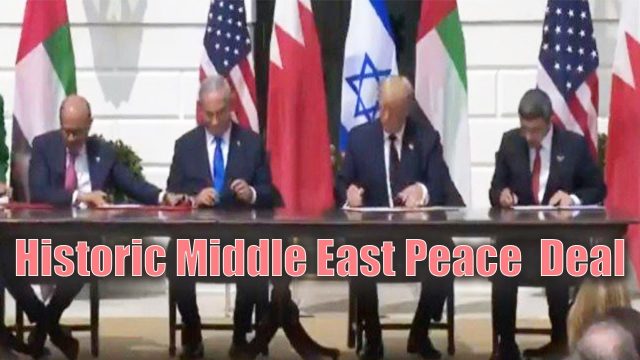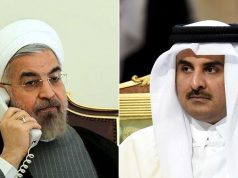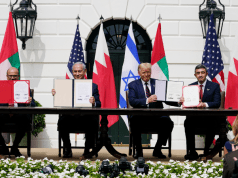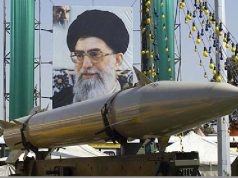.
By Ayoob Kara
The Abraham Agreements that were initiated by former Israeli Prime Minister Benjamin Netanyahu and former American President Donald Trump were originally supposed to include more than 10 states. The only reason that it stopped with only the United Arab Emirates, Morocco, Bahrain, Bhutan, and Sudan is because Trump stopped being America’s President and Netanyahu stopped being Israel’s Prime Minister.
When I was beside Netanyahu as Communication Minister, more and more countries from the Sunni states wanted to be part of the Abraham Accords. Netanyahu and Trump worked directly to find a solution for anything that they needed. For example, Sudan needed to be removed from the list of countries sponsoring terrorism to make peace with Israel. They felt that they were a new government that had nothing to do with the old regime and should not be penalized for the crimes of the past regime. Trump helped make that happen.
Morocco wanted the idea that the Western Sahara was part of their country to be accepted internationally. Trump worked to make that happen. The United Arab Emirates (UAE) wanted advanced weapons, so that they could better confront Iranian aggression. As the recent Iranian drone strike in Abu Dhabi demonstrated, this assistance was badly needed. Trump worked to make this happen.
Trump’s strategy was working. Just as Trump was leaving office, Saudi Arabia, Oman, Mauritania, and Qatar were about to sign onto the Abraham Accords. Also, there were many Sunni states which are not Arab that are waiting to change their relationship with Israel, like Indonesia, Pakistan, and others. If the governments had not changed in Israel and America, I am positive that these countries would have already established diplomatic relations with Israel.
Unfortunately, neither the Biden administration nor the Biden government are willing to go to the same lengths to support the Abraham Accords, as they don’t want to promote policies that were the crowning achievements of their political adversaries. For Biden, it is “anything but Trump”. For this reason, he criticizes Saudi Arabia for “human rights violations” and seeks to make a “deal with Iran,” policies that don’t do anything to encourage the Saudis to joining the Abraham Accords.
The Bennett government is not much better. It declared the UAE to be a “red country” and are trying to undo the oil deals signed by the Netanyahu government due to “environmental concerns.” But, I do not worry. Most of them have a good relationship with Israel, even though it is not formal.
As President of the Economic Peace Center, I am working hard to continue to improve relationships until the time comes to make this relationship formal. I am sure that this time will come, as today the number one threat facing the region is the government in Tehran, not Israel. Iran funds Hamas, Hezbollah, the Palestinian Islamic Jihad, the Houthis, the Assad regime, the Shia militias in Iraq, and other terror groups throughout the world. They stand behind the instability in Lebanon, Syria, Yemen, and Iraq. The Sunni countries cooperate with Israel to counter this Shi’a threat.
In the Middle East, there are two camps today: the Saudi Arabian coalition that includes Israel versus the Iranian mullah’s regime together with Hezbollah, Hamas, the Houthis, and other terror groups. I am positive that soon Israel, together with the Saudi Arabian coalition, will bring this Iranian terror to a halt.
Countries like Saudi Arabia, Egypt, and the Emirates will prevail in their war against terrorism. But, they must stick together and coordinate their activities, if they really want to win.
Ayoob Kara was born in the Israeli Druze town of Daliat el-Carmel in 1955. He completed his army service in the Israeli Defense Forces with the rank of major and studied business administration and public policy. He served in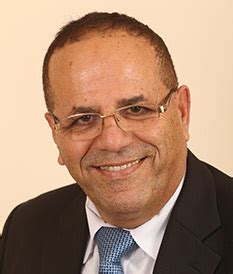 the Knesset from 1999 until 2006, and as Deputy Minister of Development of the Negev and the Galilee, Minister at the Prime Minister’s Office for Special Functions, and as Israel’s Minister of Satellite Communications and Cyber.
the Knesset from 1999 until 2006, and as Deputy Minister of Development of the Negev and the Galilee, Minister at the Prime Minister’s Office for Special Functions, and as Israel’s Minister of Satellite Communications and Cyber.
In 2015, Kara recognized an opportunity for bridging diplomatic relations between Israel, the Middle East, the Gulf countries and other Islamic states in the region, and he promoted a regional economic conference between the countries. After the election of President Donald Trump, Kara met with him, which led to the economic conference in Bahrain, which concluded that there is a need for a non political body to initiate and promote the economic initiatives for the region.
Ken`s new book The Multifront War is now available in 190 countries via Amazon and also on BNs in the US. Buy it now!
.
.
.

